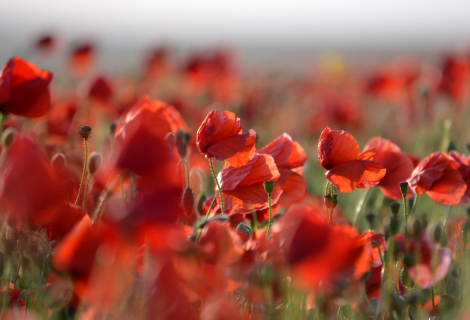Guest Post: Inspiration Awards for Women
Posted on August 4, 2014
0 people commented on this
 Flickr: Neilhooting
Flickr: Neilhooting
We decided to look at community a little differently today. Following a Guardian piece on the rise of death doulas – who support their clients as they come to terms with their death – we decided to track one down and see how the idea of dying brings people together. So we talked to Annie H of Living Well Dying Well about what community means to her – and her clients.
Why did you decide to become a death doula?
I've always thought that death is as important as birth. When some of my close relatives died I was shocked at how poorly it was handled. It was only when my mother died that I had a positive experience of it – she died at home and was very sensitively supported by the GP and community nurses. I really wanted to let other people know that it doesn't have to be traumatic – it can be beautiful. I was thrilled when I found out I didn't need to have a health background and could train to be a doula with Living Well Dying Well.
What does community mean to you, as a death doula?
I see that death has been gradually moved away from our ordinary lives and from the community. Over 60% of deaths happen in hospitals now, and about 5-6% in hospices. Other statistics show that 70% of us want to die at home! So there is a big gap between what we want and what is happening.
Most people say they want to be in familiar surroundings at home, with people they love around them, family, friends, and sometimes neighbours. They want to live life to the end and not suddenly have a change of identity: into a patient or a ‘dying person’. We have to start thinking about these things early, because events often overtake us and once we get caught up in the machinery of hospital admissions and so on, its hard to change course.
I help to coordinate and handle the people who want to rally round and help with sensitivity. It may not be the easiest thing in the world to do but in my experience everyone feels privileged to be part of this most profound life event.
I'd like to see a doula for the dying working in every neighbourhood to support and facilitate people to die where they want to.
Do you think the idea of death brings people together? If so, why?
Death really can bring people together in a very humbling way. When a family or community are faced with an imminent death, suddenly all the priorities change. All kinds of other concerns drop away. At its best people rally round and it can even get quite jolly – ordinary life goes on – laughter and tears are there in equal measure. Though I have to say there are times when it can do the opposite drive people apart – I've been involved with a family at war with each other and somehow the death brings all the pain, disagreements and arguments right to the fore.
Do you think a lot of your role is about providing comfort through human conversation and companionship?
Yes and much more, the role is all about being a ‘friend in death’. We are there to form a relationship with everyone involved, to 'be with' them no matter where it goes. People who are dying at home find a lot of other professionals visit for 15 minutes or an hour, maybe to administer medications or personal care and then they leave. There may be a different person coming in every day. We are able to be a consistent and flexible presence, walking alongside for as long as it takes.
How would you describe the relationships you build with your clients? Is it ever hard to maintain a professional distance in a job that relies so heavily on the personal?
In our training we discuss this a lot. Our role is fundamentally about being an informed companion. We are professional, but we often have a deeper connection with people, because we are a more consistent presence. We see the relationship and being with people as the priority. I've found it is a matter of making micro adjustments in myself. To have boundaries that give me space to have my own feelings; to make sure my own needs are met, to talk to my mentor or colleagues, so that I get the balance right. I do feel emotional and allow myself to express that, but I also try to draw on a deeper part of myself and remind myself that that although I may be feeling moved as a human being by what's happening, its not my mum or dad or husband, or son or daughter.
What do you see when you look in the mirror?
Ahh! I see a woman who is more lined and jowly than she really likes, but who has a lived-in face, with loads of experience on display. Sometimes when I look I am amazed that one day, I won't be here. I will have outlived this body. I wonder about the shape and form I will take for the next bit of the journey.
Thanks to Annie for talking to us. You can find out more about death doulas here and here.
Comments
0 Comments - Be the first
Comments